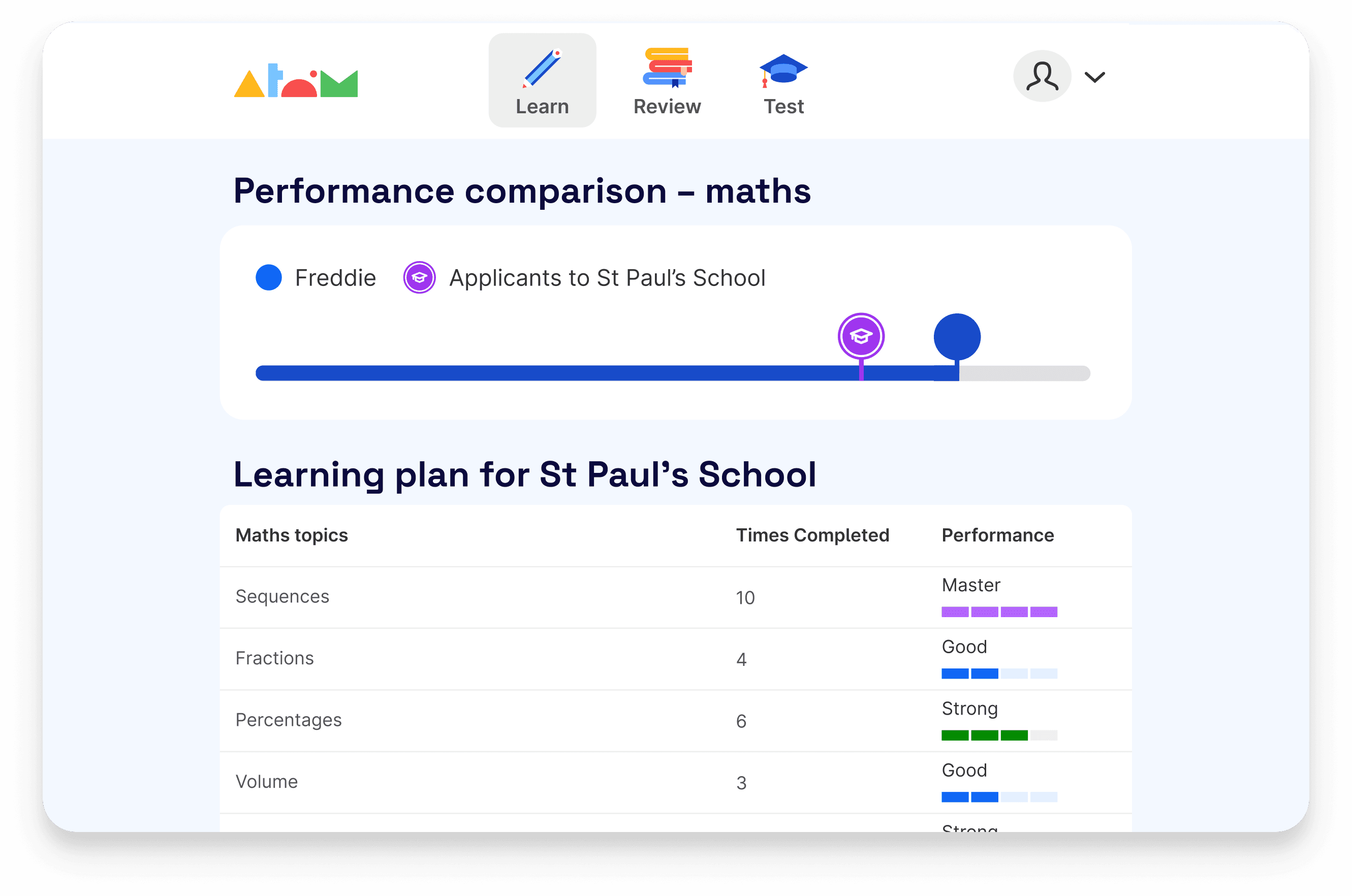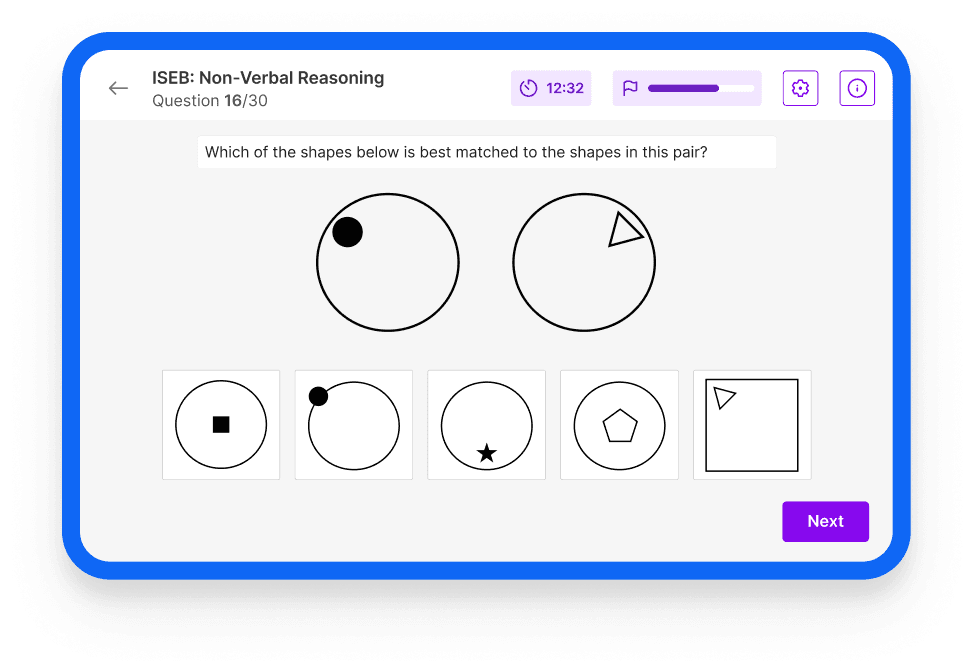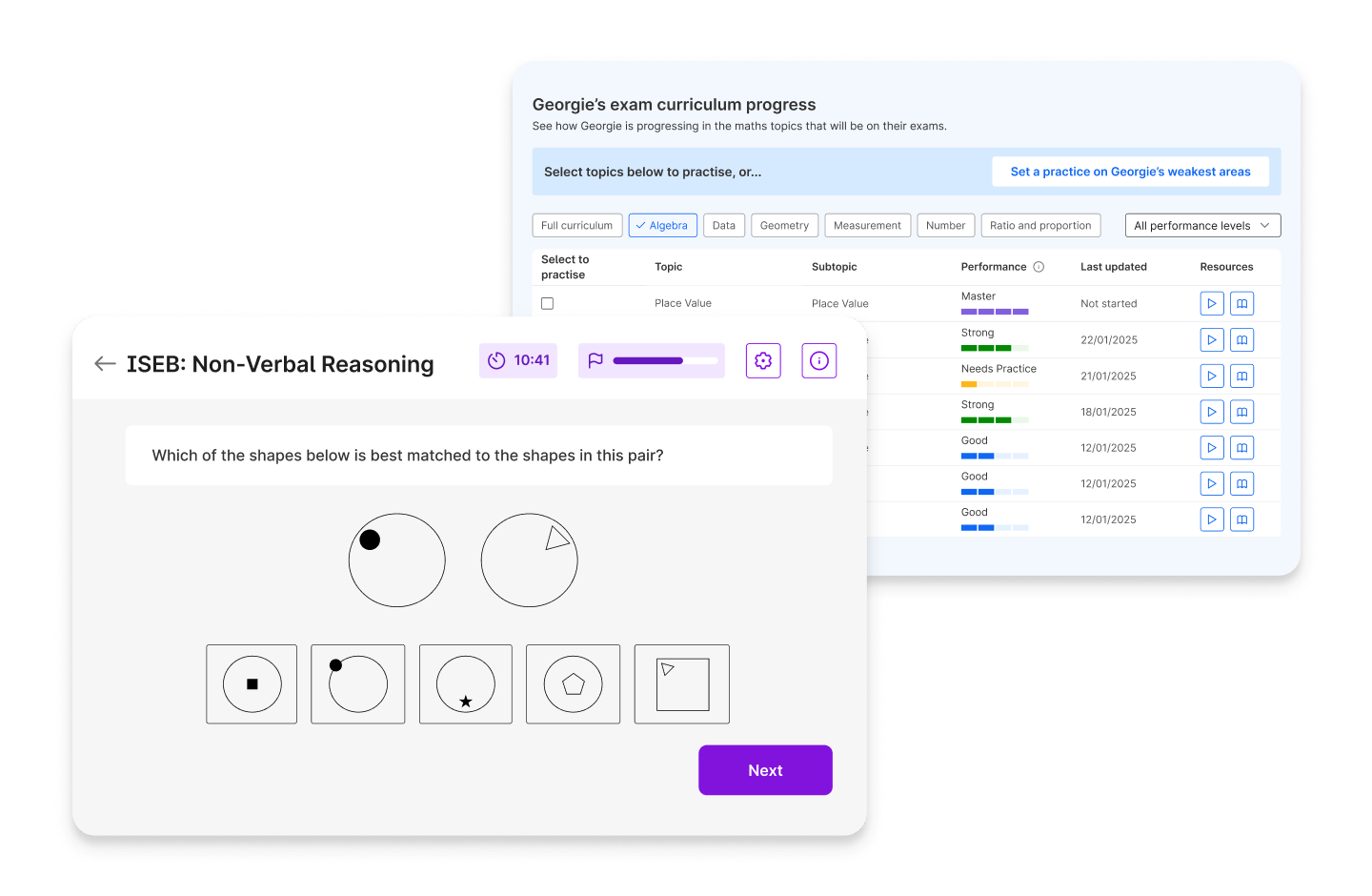St Paul’s School 13+ entry guide

Considering St Paul's School for your child? We’ve collated everything you need to know about 13+ entry. Learn how to apply, what’s on the entrance exam, and how to help your child prepare for success.
Key information for St Paul's School
- Address: St Paul's School, Lonsdale Road, London, SW13 9JT
- Age range and gender: boys aged 7–18
- Type of school: independent day and boarding school
- Number of students: 1,500+
- Admissions contact: [email protected]
- 13+ open days: March, April, May and September
- 13+ selection criteria: ISEB Common Pre-Test (stage 1), written assessments (stage 2), interview (stage 3) and headteacher’s reference
- Financial assistance: means-tested bursaries
- 13+ scholarships: academic and music
About St Paul's School
St Paul’s School is one of the top private schools in the UK and provides a prestigious education for boys aged 7–18. It was founded in 1590 by John Colet, Dean of St Paul’s Cathedral. The aim was to educate boys ‘from all nations and countries indifferently.’ The school encompasses a senior school (ages 13–18) and a prep school, St Paul’s Juniors (ages 7–13).
St Paul's is located on a 45-acre site by the River Thames in Barnes, South West London. Boys have access to exceptional facilities. These include a RIBA award-winning science building and the new Samuel Pepys Theatre (named after the famous former pupil).
Life at St Paul's is described as fast. Bright boys thrive in a wide variety of academic pursuits and an unparalleled range of co-curricular activities. The school is well-known for sports, with almost 30 activities to choose from, and many pupils progress to regional, national, and international levels.
Boys leave St Paul's for exceptional global universities. 80% of students take places at the top 12 UK universities, while 13% secure positions at North American universities including the Ivy League.
Dates for your diary
- Registration opens: February in Year 5
- Registration closes: September in Year 6
- Stage 1 entrance exam (ISEB): October–November in Year 6
- Stage 2 entrance exam (written tests): January in Year 6
- Stage 3 (interviews): January–June in Year 6
- Offers of places: June in Year 6
St Paul's School 13+ entrance exam
Stage 1
All boys applying for 13+ entry to St Paul's School sit the ISEB Common Pre-Test. This is an exam created by the Independent Schools Examination Board which is usually taken in the autumn term of Year 6.
The ISEB Common Pre-Test is taken online and consists of multiple choice questions. It is entirely adaptive, which means the questions become more difficult depending on how your child is performing. The questions span four subjects:
- Maths: questions are based on the Year 5 national curriculum – although children in Year 6 may find this section challenging. The questions range from arithmetic to multi-step problem solving.
- English: questions are split into two sections: reading comprehension, and spelling, punctuation and grammar.
- Verbal reasoning: your child will be tested on their ability to reason and solve problems with written information, such as letters, words, symbols and numbers.
- Non-verbal reasoning: these questions assess your child’s logic, critical thinking and problem-solving skills using figures and diagrams. They will need to show that they can analyse and manipulate 2D and 3D figures.
The ISEB Common Pre-Test takes around 2 and a half hours to complete. Your child can sit the four subjects together or at separate times. If they are taking all four subjects on the same day, they will be allowed a short break between each section.
St Paul’s School will also request a report from your child’s current headteacher to provide more information on their character, academic strengths and interests. The admissions team will review this report and your child’s ISEB results before deciding which children to take forward to Stage 2.
Stage 2
Stage 2 of the St Paul’s School 13+ admissions process consists of two written assessments:
Boys who perform well in these tests are taken forward to stage 3.
Stage 3
The final stage of the St Paul’s 13+ entrance process consists of interviews. Boys have a 25 minute interview with two senior members of the teaching staff. Parents also have the opportunity to meet with a senior member of staff for 25 minutes.
Learn more and get top tips in Atom’s guide to private school interviews.
Is your child ready for the ISEB Pre-test?
See where they stand in minutes. Atom’s free ISEB baseline tests give you an instant breakdown of their strengths and gaps. Know exactly what to focus on next and start preparing with direction, not uncertainty.
.png)
Atom’s top tips for applying to St Paul's School
St Paul's School is a selective school, and competition for places can be high. Here are our top tips to help your child prepare for the selection process.
Bitesize learning
It’s important to build a good knowledge base before school entrance exams. Your child should have a good understanding of the content they’ve been taught at school before testing their knowledge with practice tests.
Using a ‘little and often’ approach when learning is key – our brains encode new information more effectively when dealing with smaller ‘chunks’ of information. For children aged 10–11, child psychologists recommend regular study sessions of 20–30 minutes.
With Atom Home, you don’t need to worry about creating a study schedule. When you enter your target schools, you’ll get a bespoke learning plan tailored to your schools’ entrance exams. Know exactly what your child needs to do each week to confidently pass.

Read widely
Entrance exams test children’s ability to analyse and interpret written information. Regular reading is a great way to help your child build these skills.
Encourage them to read books from different genres and by a diverse range of authors. Increasing the variety of your child’s reading will help them understand different styles, tones and purposes. Meanwhile, reading a little every day will help widen their vocabulary, sharpen their analytical thinking, and enhance their imagination.
Looking for reading inspiration? Check out our Key Stage 2 reading list.
Hone curiosity
Selective schools are often looking for children who are interested in learning. You can help by supporting your child’s broader learning, their intellectual curiosity, and their passion for developing an understanding of the world.
Talk to your child about the world we live in and inspire an interest in current affairs with age-appropriate journalism. It’s also a good idea to make sure they’re benefitting from a rich variety of experiences, such as visiting libraries, museums and galleries.
Refine exam technique
When your child feels confident with their knowledge of the exam topics, they’ll be ready to put their knowledge to the test.
Mock tests can help your child develop problem-solving skills and refine exam technique. They’re also a great way to consolidate learning, while highlighting any knowledge gaps they might want to tackle before exam day.
When you set St Paul's School as a target school on Atom Home, your child will get ISEB mock tests as part of their learning plan. Atom’s mock tests mirror the real ISEB – the curriculum, the timings, the controls and even the colours. Know what to expect on exam day.

Celebrate progress
Setting regular, achievable goals and celebrating your child’s progress – no matter how big or small – will help keep their motivation high.
Make sure to encourage a growth mindset. This means celebrating effort, as well as achievement! When your child makes mistakes or struggles to understand a particular topic, help them understand that they’ll improve through practice. Regular praise will help your child improve their resilience when tackling new and challenging topics.
Remove the guesswork from ISEB prep.

Worried about how your child will perform in the ISEB Common Pre-Test? The adaptive format can feel unpredictable, but their preparation doesn’t have to.
Atom adapts to your child’s level as they work. We show you exactly what they need to practise and how they’re progressing.
- Follow personalised weekly exam plans that adjust to your child’s performance and show them what to learn next.
- Practise with replica ISEB mock tests that generate new questions every time, so they build real exam skills.
- Track progress and see how they compare to others preparing for the ISEB Pre-Test.
Start your free trial and watch your child master every ISEB subject.




